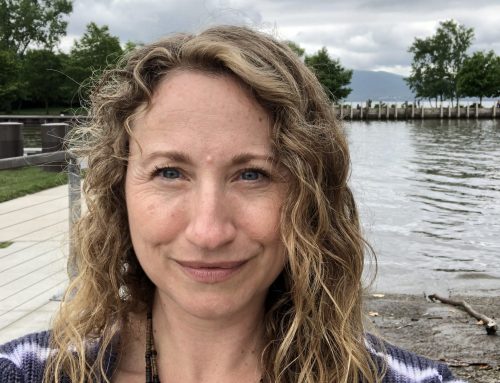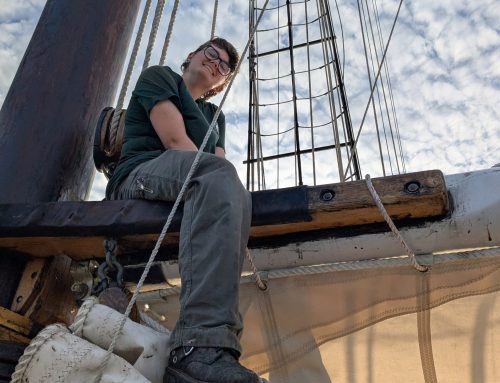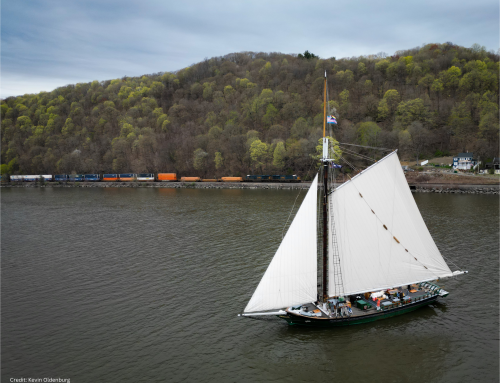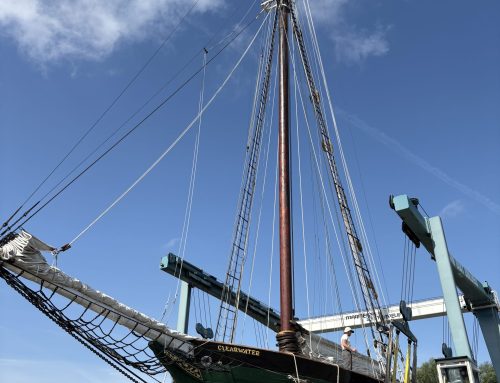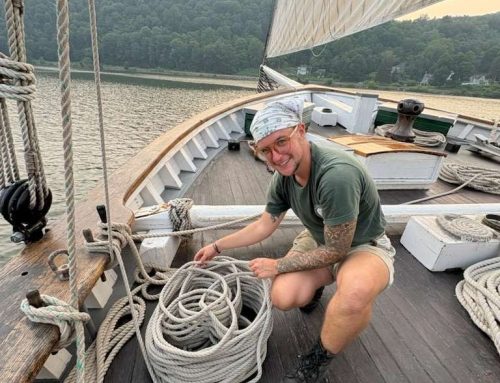Clearwater Congratulates EPA for Securing an Agreement with General Electric to Sample PCBs in the Lower Hudson River
After 20 years since General Electric was held legally responsible for the pollution of what is now known as the Hudson River PCBs Superfund site, Hudson River Sloop Clearwater is pleased that the Environmental Protection Agency (EPA) has demonstrated their ongoing commitment to the health of the communities along the Hudson River.
While securing a settlement with General Electric to study the Lower Hudson is a step in the right direction, it is important to note that this is a voluntary Settlement Agreement between GE and EPA. The additional data collection — on water, sediment, and fish — will pave the way for the next steps to be determined in remediating the harmful effects of PCB pollution in the Hudson River.
General Electric’s Fort Edward and Hudson Falls plants discharged polychlorinated biphenyls (PCBs) into the Hudson River for more than 30 years until they were finally banned in 1977. Hudson River Sloop Clearwater’s research published in the 1993 Hudson River Angler Survey became an important turning point in the Hudson River PCB Superfund site case by showing the nexus between PCB contamination of Hudson River water, sediment, and human health. This research actively demonstrated that humans were unaware of and/or ignoring health advisories and were consuming PCB-containing fish. Not only are PCBs found in sediments and the water column, but this dangerous toxin also bioaccumulates in the bodies of fish and other wildlife.
“PCB’s make the Hudson, once an abundant source of food for the rich and poor alike, off-limits for fish consumption, except in very small amounts,” said Environmental Action Director, Manna Jo Greene.
PCBs, an insulating oil formerly used in transformers and capacitors, are persistent organic pollutants which bioaccumulate and can compromise the immune response to other toxins. People and animals who eat at the top of the heavily contaminated food chain as a necessary part of their diet are especially prone to the negative health impacts caused by ingesting concentrated amounts of PCBs, which include cancer and hormonal and reproductive disruptions. Women of childbearing age and children under the age of 15 are particularly susceptible to these negative health impacts.
According to the NYS Department of Health there is an “Eat None” warning for women of childbearing age and children up to 15, and very limited amounts for adult males. Data gathered from the 2010 Peekskill Angler Survey shows that 49% of the respondents reported that sustenance was at least one of the reasons they fished from the Hudson River. Clearwater’s 1993 Angler Survey showed 94% of the Latinx residents said they eat their catch, compared to 77% of the Black residents and 47% of the white residents. Lowering PCB levels in fish tissue is the key objective of the cleanup remedy selected in 2002 by EPA.
“Pursuing a study on the PCB effects in the lower Hudson is critically important to charting a path towards remediation; so that at some point in our future, we see fish and other wildlife in the estuary free of PCB’s and edible by those fishing our waters. We need all Hudson River communities to stay informed with the results of any studies and have the opportunity to take action to assure remediation takes place and the aquatic life in the river thrives,” Clearwater’s Executive Director, David Toman stated.
Founded with a mission to protect the Hudson River since 1969, Hudson River Sloop Clearwater is revered as a platform of grassroots advocacy that breathed life into the “environmental movement,” contributing to landmark victories including the passage of the Clean Water Act in 1972, the Resource Conservation and Recovery Act (RCRA) Laws and Regulations of 1976, and the Comprehensive Environmental Response, Compensation and Liability Act (CERCLA) in 1980.
Clearwater equips the Hudson River Valley community with one of the most important resources to become lifelong stewards of their environment — knowledge. The EPA, continuing its plans for supplemental studies in the Lower Hudson River, recently presented on the progress of the water, sediment, and fish sampling to the site’s Community Advisory Group (CAG), on which Clearwater has served since its inception in January 2004.
Clearwater will stand arm in arm with Hudson River communities, grow the ranks of advocates for this invaluable resource, and continue to call on state and federal bodies to hold accountable those whose actions have harmed the Hudson until the work is complete.
References: EPA Press Release on 9/13/2022 settlement
About Hudson River Sloop Clearwater
Launched in 1969 by legendary folk singer and activist Pete Seeger, Hudson River Sloop Clearwater has been at the forefront of the environmental movement as a champion of the Hudson River. To date, more than half a million people have experienced their first real look at an estuary’s ecosystem aboard the Sloop Clearwater. Clearwater has become a grassroots model for producing positive changes to protect the waters of our planet. For more information, visit www.clearwater.org.

